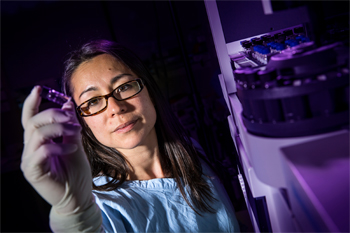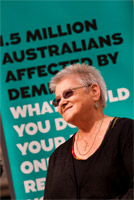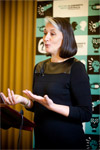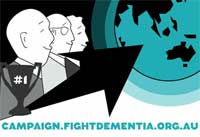Scientists Reprogram Skin Cells To Help Find Cure For Alzheimer's

Scientists Reprogram Skin Cells To Help Find Cure For Alzheimer's
Neuroscientists from the University of Wollongong (UOW) are reprogramming skin cells in order to discover new treatments and ultimately a cure for a range of devastating brain diseases such as Alzheimer's, Schizophrenia and Motor Neurone Disease.
Dr Lezanne Ooi, from the Illawarra Health and Medical Research Institute based at UOW, is at the forefront of an exciting new branch of neuroscience that converts donated human cells back to their original pluripotent stem cell state so that they can be used in disease modelling and drug discovery.
'In my lab, we are trying to understand the differences in cells from patients who suffer from diseases like Alzheimer's compared to people who don't," Dr Ooi said.
'One of the ways that we started to tackle this problem is by taking donated skin cells from patients and reprogramming those cells to a stem cell like state. We then use those cells to generate brain cells (and other cells that represent the disease) in a dish. From there, we try to use those cells to identify new treatments or to understand the reasons why those cells are different and die in diseases like Alzheimer's."
This new method of reprogramming cells was originally invented in 2006 and won the Nobel Prize in Physiology or Medicine in 2012.
Dr Ooi and her team have already started to look at cells from Alzheimer's patients and compare them to patients who don't have the disease.
'We've identified a couple of compounds that are able to protect those cells from getting the disease in a dish. We have a little way to go, but we are starting to understand the mechanism behind why those compounds are protective," she said.
Dr Ooi said the field is moving incredibly quickly because scientists around the world have realised that almost any disease can be modelled using this method.
She said the technology is also a step closer to personalised medicines, as the donated cultured cells provide an avatar for the real patient, where in the future doctors can test how the patient might react to a particular drug.
More info: http://media.uow.edu.au/releases/UOW181998.html
Have You Seen This?
MORE









